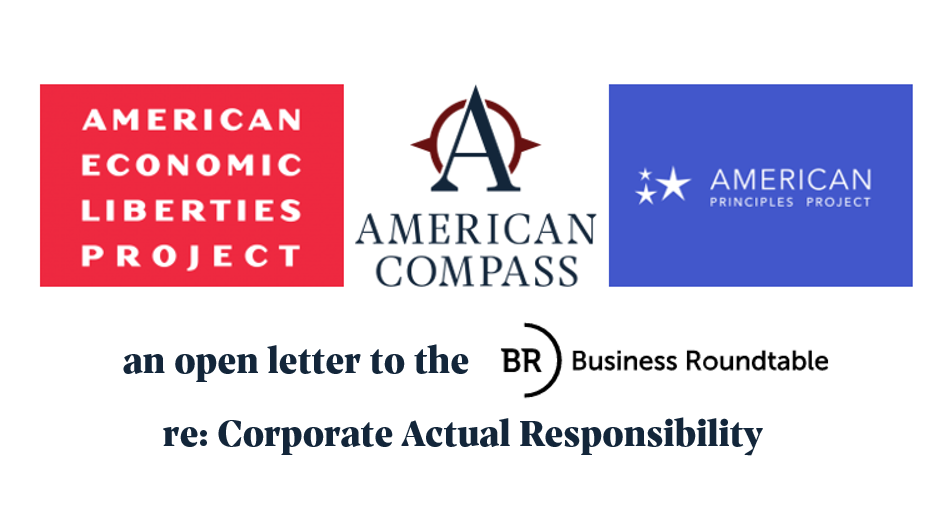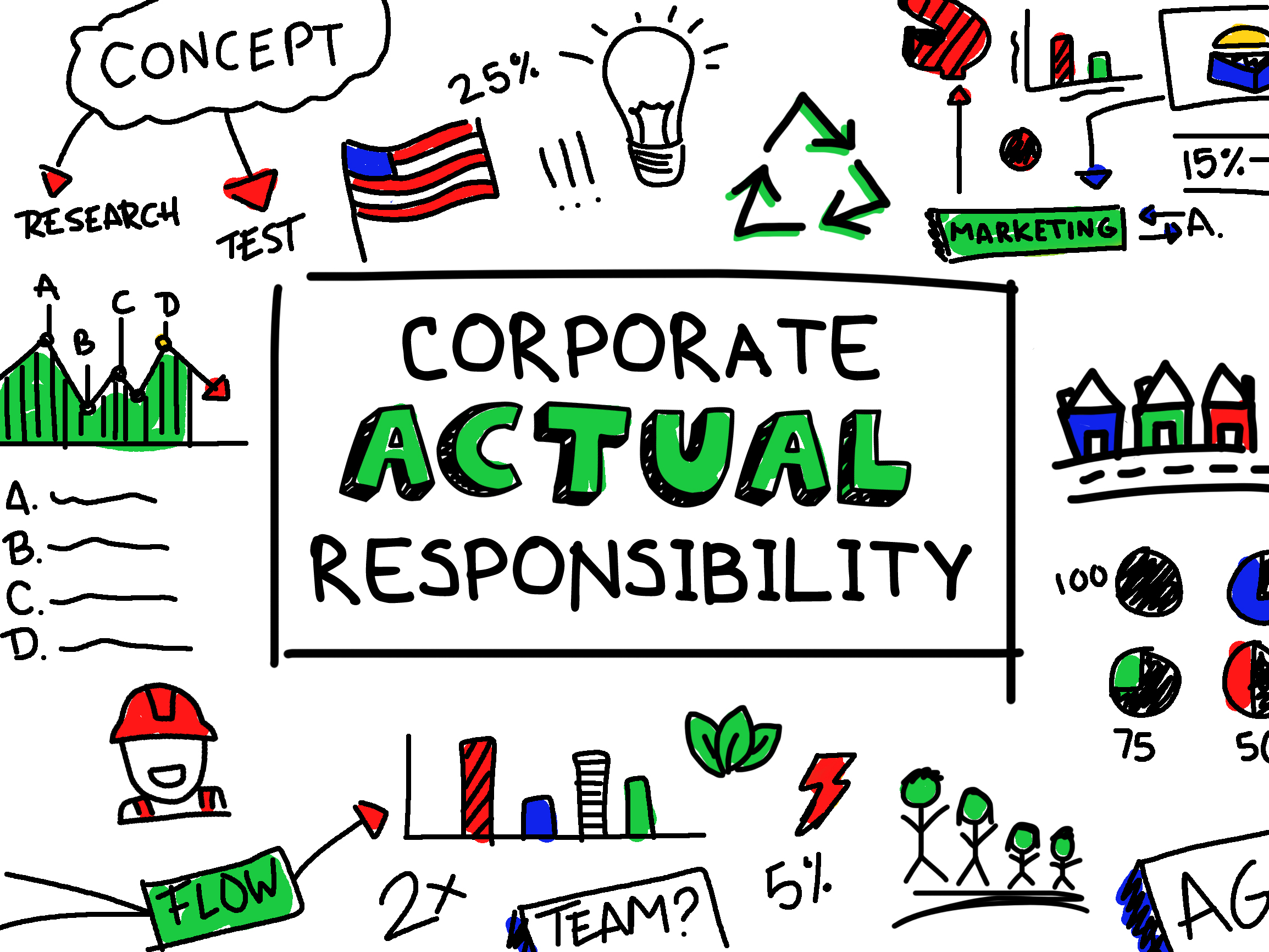
RECOMMENDED READING
Just as American Compass was releasing the Corporate Actual Responsibility project, the New York Times’s DealBook announced its own corporate-responsibility event. But the progressive Times wasn’t covering the obligations that businesses have to workers, their families and communities. Instead, it hosted a discussion with its own Nikole Hannah-Jones, creator of The 1619 Project, to discuss “racial injustice and corporate America.” It’s just the latest synthesis of “corporate social responsibility” and woke ideology, the elevation of identitarian commitments over actual ones.
Beyond the exercise’s farce, there is a real tragedy here. Racial inequities pose real challenges for America that DealBook is well-positioned to report and that corporations do, in fact, have an obligation to help address. For instance, the capital markets that make economic development possible have long ignored predominantly Black communities. Just last year, Federal Reserve Chairman Jerome Powell called attention to the role of bank consolidation in creating “banking deserts,” where high-interest payday lenders are often the primary, or only, financial institution available to residents. In a landmark book, The Color of Money, UC Irvine law professor Mehrsa Baradaran documented the role of financial systems in creating and perpetuating the racial wealth gap.
The role of corporate actual responsibility here is clear: businesses—and banks, in particular—should invest in, and providing financial instruments to, underserved communities. As Oren Cass notes in his recent essay, “To play constructive roles in their communities, firms should leverage their own assets and operations to address local needs, not just write checks.” Grassroots efforts are already underway to do just this. Rapper and activist Michael “Killer Mike” Render has organized a #BankBlack campaign to scale up Black-owned financial institutions that serve under-banked areas. DealBook echoes Cass when it claims that “progress must be made with bigger, concrete proposals and not just well-intentioned pledges, hashtag activism or one-off donations.”
But the ideology that undergirds the 1619 Project makes such concrete business efforts less likely, as is obvious from DealBook’s choice to host a controversial journalist who lacks applicable expertise. In constructing identitarian communities, wokeness attenuates loyalties to proximate ones. Basic obligations are lost in the struggle over meta-narratives. As Times columnist Ross Douthat has perceptively argued, this may be precisely why corporate America embraces “woke” movements that draw focus away from concrete problems and reforms.
It’s this very way of conceptualizing our social and political challenges that, to the Times’s dismay, makes “just well-intentioned pledges, hashtag activism or one-off donation” seem like the only available remedy. How to address the needs of an underserved community? Corporate actual responsibility would recommend fulfilling basic obligations – like investing and operating in those communities and paying the workers who live there a family-supporting wage. But how exactly is a business to address the “effects of slavery throughout the American capitalist project,” as DealBook emphasizes, except through performative atonement?
This same dynamic is pervasive across corporate campaigns for “diversity and inclusion.” Businesses release public statements swearing their allegiance to the cause and commit themselves to “representation” in the board room or C-suite, rather than committing actual assets and operations to supporting their workers. In a recent Q&A, MIT Sloan professor Zeynep Ton suggests that these more performative measures are driven by shareholders and board members:
Boards and investors rarely ask about [employees’ basic needs]. But they do ask about sustainability or diversity, so that’s where executives focus. And even when it comes to race, diversity, and inclusion, the focus is often on metrics such as the number of people of color on Boards or in the C-Suite (obviously these are important) and less on the quality of jobs people of color hold and ensuring their jobs pay a living wage and allow them to live with dignity.
Meanwhile, our cultural institutions often provide center stage for the performance. DealBook, for instance, features Goldman Sachs’s pledge at Davos to require that IPO clients have “at least one ‘diverse’ board candidate,” rather than covering Goldman’s Urban Investment Group, which deploys $1 billion annually to community and economic development projects in underserved areas. Nike elevates Colin Kaepernick as a woke corporate spokesman to sell America shoes made with Uyghur labor. Hannah-Jones says that she’s “really impressed” with the NBA’s embrace of Black Lives Matter, noting “that particular symbolism is really powerful” while overlooking the league’s cozying up to the Chinese Communist Party.
The message from the cultural tastemakers is clear: amplifying the right messages gets you farther than employing the right practices. They are failing in their own obligations to actual workers, families, and communities, as surely as the other institutions they place in their sights.
Recommended Reading
Left-Right Coalition Releases Open Letter to Business Roundtable on Corporate Actual Responsibility
After a year of empty promises from CEOs, the groups propose a framework for substantive action.
Corporate Actual Responsibility, with Sen. Josh Hawley
Senator Josh Hawley talks with American Compass executive director Oren Cass about the empty platitudes and hypocrisy of “woke capital” and why conservatives must work to prioritize the needs of workers and families in their economic policy agenda.
Corporate Actual Responsibility
Holding corporations accountable for their obligations to workers, their families and communities, and the nation.













